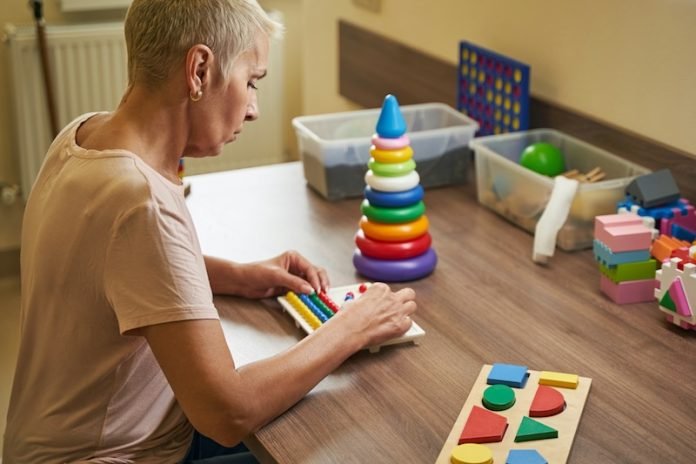
Dementia is a term that describes various symptoms of cognitive decline, such as forgetfulness and confusion, which interfere with daily life. Alzheimer’s disease is the most common type of dementia.
Detecting dementia early can be crucial for managing symptoms and planning for the future. One of the primary tools for early detection is cognitive testing.
This review explores how cognitive tests are used to identify early signs of dementia, the effectiveness of these tests, and what recent research suggests about improving early detection.
What are Cognitive Tests?
Cognitive tests are tools used by healthcare professionals to evaluate memory, problem-solving skills, attention, counting, and language abilities.
These tests provide crucial insights into a person’s cognitive functions and are often used to assess whether someone might be developing dementia.
A typical test might involve tasks like remembering a list of words, following instructions to draw a clock, solving puzzles, or answering questions related to time or current events.
These tasks are designed to check various areas of cognitive function and can highlight problems that might not yet be obvious in everyday activities.
Why Early Detection Matters
Identifying dementia early is crucial for several reasons. Early diagnosis allows for timely treatment that might help slow the progression of symptoms, provides an opportunity for patients and families to plan for the future, and may improve the quality of life for those affected.
Moreover, early detection can help distinguish dementia from normal age-related changes or other treatable conditions like depression or vitamin deficiencies, which can sometimes mimic the symptoms of dementia.
Effectiveness of Cognitive Tests
Cognitive tests are useful for detecting dementia early, especially when combined with a detailed medical history and other assessments.
The Mini-Mental State Examination (MMSE) and the Montreal Cognitive Assessment (MoCA) are widely used because of their reliability and simplicity.
These tests are quick to administer and can be performed in a typical healthcare setting, often during routine check-ups.
However, while these tests are effective for detecting moderate to severe cognitive impairments, they can sometimes miss the very early stages of dementia.
Also, factors like education, cultural background, and native language can influence test results, leading to under- or over-diagnosis in some populations.
Recent Advances in Cognitive Testing
To improve the sensitivity of early detection, researchers are developing new cognitive tests and refining existing ones. These newer tests aim to be more sensitive to early changes and more resistant to biases related to cultural or educational backgrounds.
For example, the Sage test, a self-administered test developed at Ohio State University, can be taken at home and has shown promise in identifying early signs of cognitive decline.
Additionally, technology-based cognitive assessments are becoming more common. These tools use computer programs or mobile apps to conduct sophisticated tests that measure reaction times, decision-making abilities, and memory with greater precision than traditional paper-and-pencil tests.
Looking Forward
Despite the advances, there is still significant room for improvement in early dementia detection. Ongoing research is focused not only on refining cognitive tests but also on integrating them with other diagnostic tools such as brain imaging and biomarker analysis.
The goal is to develop a comprehensive approach that can more accurately detect the earliest signs of dementia.
In conclusion, cognitive tests are essential tools in the early detection of dementia. They help identify those at risk of cognitive decline at a stage when interventions can be most beneficial.
As research progresses, these tests are expected to become even more accurate and accessible, helping to diagnose dementia early and improve outcomes for patients worldwide.
This progress holds the promise of better management of dementia and more precise care tailored to individual needs.
For more information about dementia, please see recent studies about brain food: nourishing your mind to outsmart dementia and results showing that re-evaluating the role of diet in dementia risk.
For more information about brain health, please see recent studies about the power of healthy fats for brain health and results showing that Mediterranean diet may preserve brain volume in older adults.
Copyright © 2024 Knowridge Science Report. All rights reserved.



